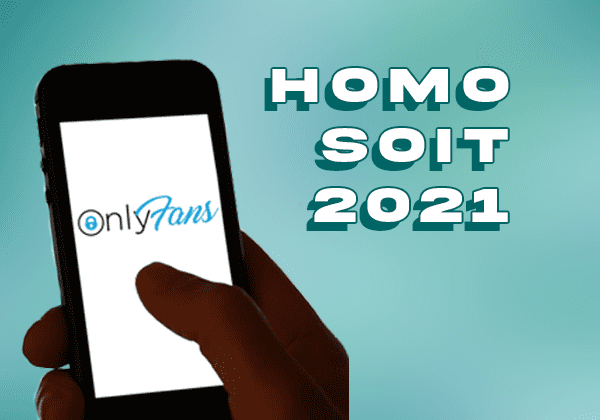Content subscription service OnlyFans pulled an about-turn late last month, reversing its snap decision to ban ‘sexually explicit content’ from its website. The platform rose to mainstream prominence throughout the pandemic, adding 77 million users and becoming heavily associated with NSFW content as users changed the way they created and consumed pornographic content. While performers may be untouched for now, the move is the most high profile of a wider trend of governments and corporations targeting sex workers in ways that threaten to undo progress that has made them more connected, financially independent and safer.
The ban was ultimately attributed to OnlyFans’ ‘banking partners and payment providers’ interest in protecting children. However many saw it as a betrayal of a community that had been so instrumental to the billion-dollar companies’ success. Since it was created, OnlyFans’ user-pays subscription model was particularly attractive for adult performers as it cut out the ‘middlemen’ of production companies and host websites, directly connecting performers to ‘fans’ who regularly paid for and consumed their content. The relative ease of setting up an account meant that anyone, including sex workers and first-time performers looking for alternate sources of income, could have complete control in creating and selling their own content online. Yet, this was not the first time financial institutions have wielded their market power and refused service to influence which parts of the sex industry are allowed to survive on the internet. In 2020, Visa and Mastercard suspended payments to Pornhub, one of many sites owned by porn giant MindGeek, following allegations of a lack of moderation of underage content.
Technology companies’ aversion to adult content is often justified by being in the interests of ‘protecting children’ and ‘preventing sex trafficking’. These actions do not provide actual protection for vulnerable sex workers and do not speak to the root of sexual violence in the industry. Therefore they have little effect on nefarious aspects of the market, while also removing a vital tool of safety and evidence collection that serves to protect workers. Scarlet Alliance, Australia’s peak body for sex worker organising, says the internet is not just just a place for workers to sell their services, but also ‘a digital tool where sex workers can access peer-information-sharing networks, safety information, advertising and screening’. When classifieds website Craigslist shut down its personal ads section in 2018, sex workers not only lost essential advertising, but also an information-sharing forum where they could connect with other workers. It allowed them to warn each other of unruly clients, provide best practices, and support to newer workers.
The censorship and removal of content at the whims of technology companies is detrimental for workers well beyond lost income, particularly for those experiencing other forms of marginalisation across race, class, gender expression, and ability. Trans and gender diverse workers, already facing much higher risks of violence, particularly rely on these forums to communicate and navigate a society where their bodies are both desired and detested.
ASH, a full-service sex worker, had most of their work move online during the pandemic. As a brown genderqueer performer, the ability to advertise through Instagram and connect with other performers, gave them more choice in who they worked with and the kind of work they took up. The ability to connect with other performers gave them access to far more information around the opportunities available and clients who were dangerous or dishonest with payment, situations that previously had no recourse due to an inability to go to the police or consumer watchdogs.
Discussions about sex workers often lead to moralised critiques that they push activities further underground. This stems from a misconception that everyone in the industry lacks agency and engages in their work through coercion or to merely ‘get by’. Rarely do politicians and companies claiming an interest in the safety of workers advance a worker centric political fight against decriminalisation – the main obstacle barring them from industrial rights and the ability to conduct their work safely and gainfully.
Sex workers have been impacted more severely by lockdowns than those in other industries. In addition to the shut down of in-person services, many had trouble accessing government support. Most in the industry act as sole traders or independent contractors, unable to provide documentation to access transfer payments available to others. While OnlyFans helped many pivot towards online work, performers became increasingly reliant on these platforms, so the prospect of being suddenly targeted, without notice or consultation, by payment processors posed an immediate threat to their income and livelihoods. Performers had entrusted these platforms with extensive amounts of personal information, and kowtowing to outside influences represented a breach of trust.
Sex work is one of the oldest and most widely known trades, and while the industry may have become more widely talked about due to OnlyFans, the attention that has followed visibility remains mostly on their work and not the workers. Black, brown and queer performers, who have successfully managed to build loyal and sustainable online followings, are now being barred from using their accounts, as reporting algorithms start to jeopradise private accounts and content.
Digital tools have undeniably made work safer, and have even been linked to lower rates of homicide in the United States. Online platforms have given workers greater control as to how they organise and structure their work and developments in reporting technology and AI could further improve conditions for sex workers. However, the failure to distinguish legitimate and consensual work from illegal content once again threatens the workers many claim to be protecting.





